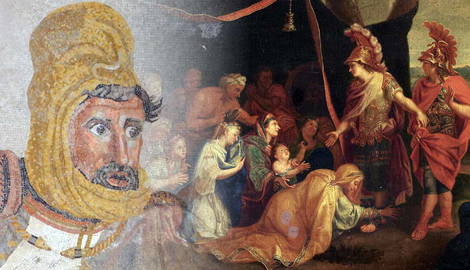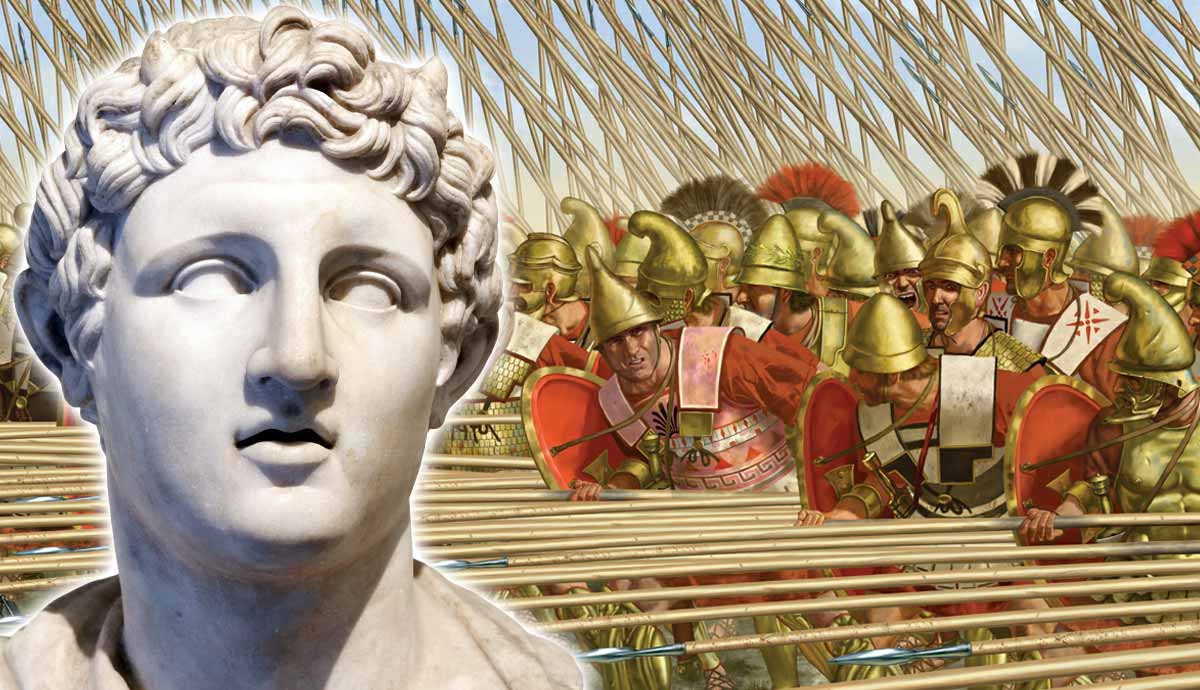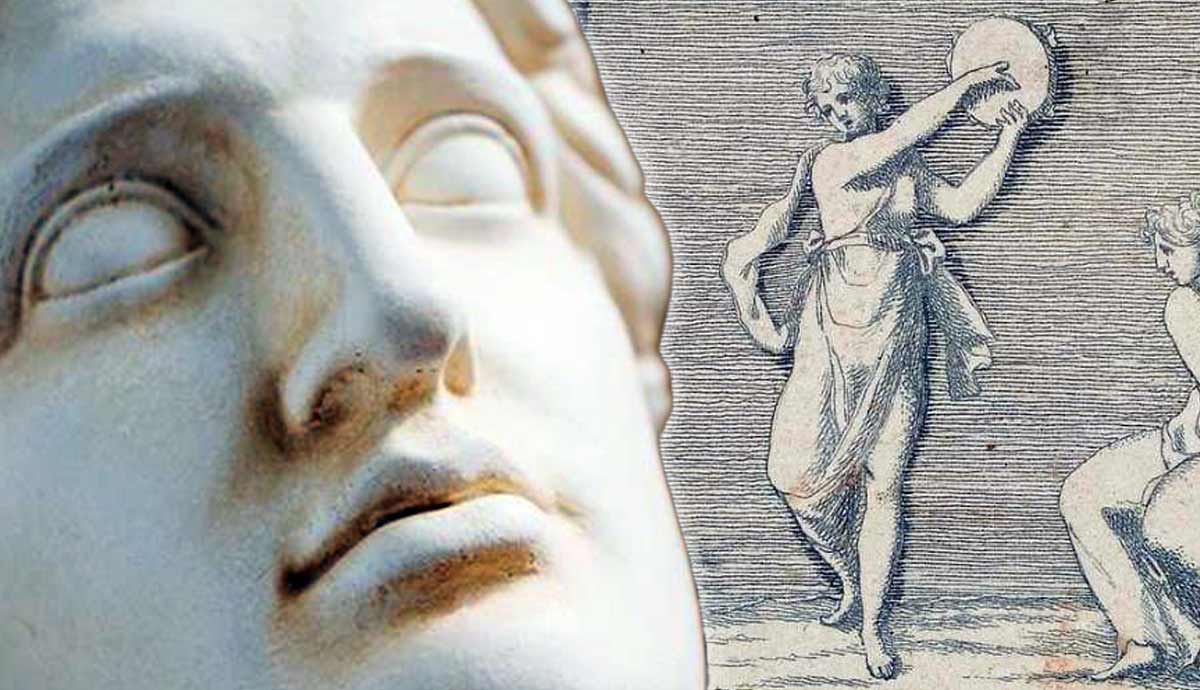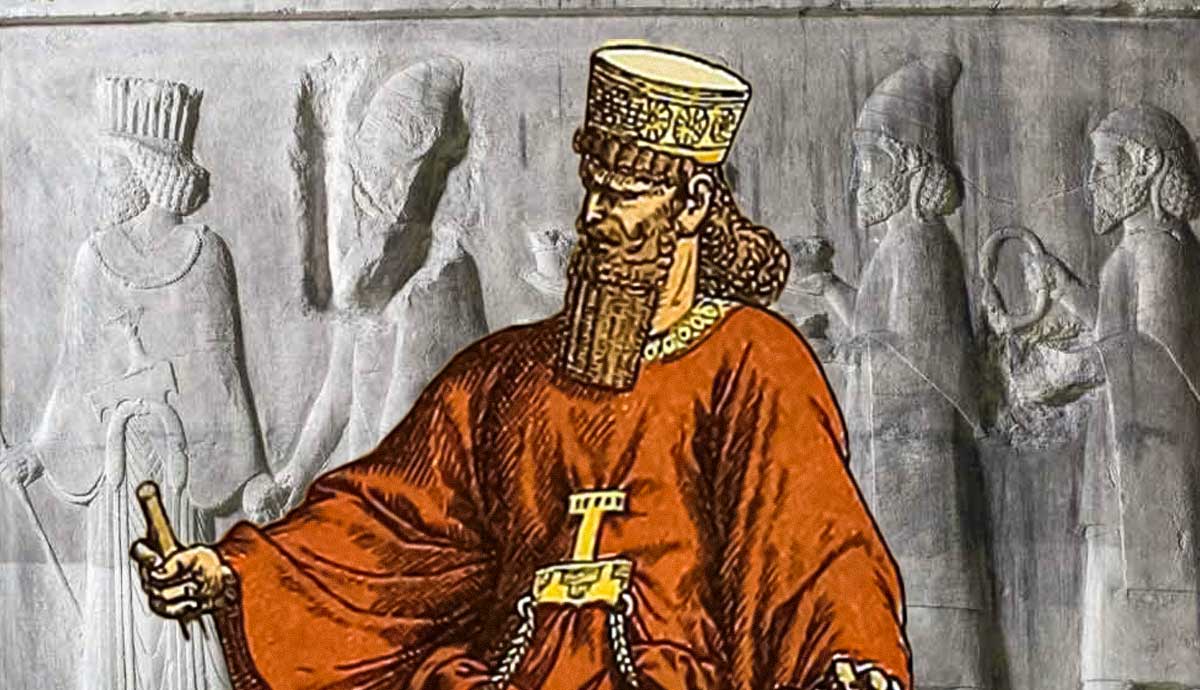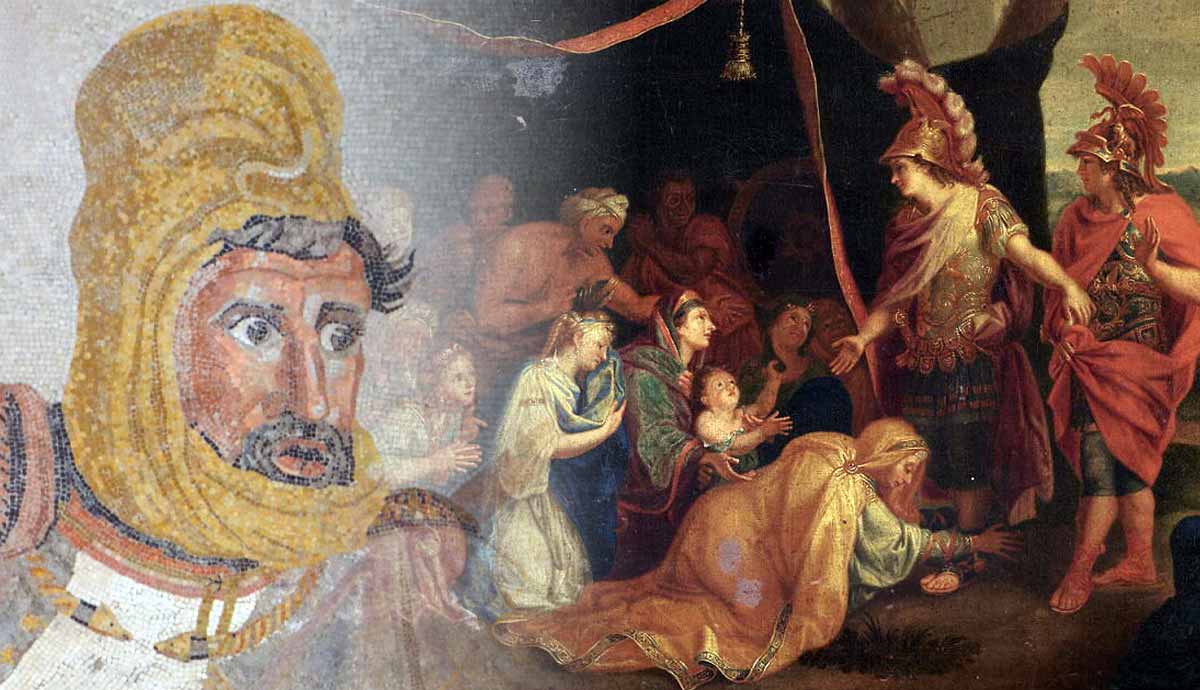
One of the few virtues of the recent Netflix series on Alexander the Great was the prominent role given to his principal opponent, Darius III of Persia. But in this retelling of history, as in most over the centuries, Darius is a supporting character in Alexander’s glorious march. While the story of Darius, the last of the Achaemenids, is preserved almost entirely in stories about Alexander, he was so much more than just a foil to the great Macedonian conqueror.
In the Shadow of Alexander

According to Pierre Briant, a leading scholar of the Achaemenid Empire, Darius exists in the shadow of Alexander. Only scraps of evidence from Darius’s life and six-year reign have survived, leaving us completely dependent on the Greco-Roman historians who wrote centuries later. Despite a deep analysis, Briant ultimately concluded that the image presented is so stereotypical that reconstructing a biography is almost hopeless.
Even though Alexander’s war was launched against Darius, the rival king rarely features in accounts. These rare appearances depict a stereotypical image of an arrogant and cowardly tyrant underestimating his opponent while living in luxury. He does all the things expected from the stereotypical “oriental” tyrant. He dismisses sensible advice given by wise Greeks, runs away in battle, and cannot be separated from the luxury. Darius generally only speaks to praise Alexander, and by the time of his death, he acknowledges his conqueror.

The few episodes that focus on Darius are really stories about Alexander. The 2nd-century CE Roman historian Justin relates how, during a round of negotiations after Alexander captured Darius’ family at the Battle of Issus, the Persian king exclaimed his gratitude for his opponent’s fair treatment of his prisoners. He goes as far as saying “that it was a consolation to him since he could not conquer, to be conquered by such an enemy” (Justin 11.12.8). If we are to believe the Greek biographer Plutarch, Darius used his last words to again thank Alexander for his conduct (Plutarch, Alexander, 43.2). When Darius is not ignored or derided, he is used as a character to reveal Alexander’s greatness further.
Trying to reverse this image and reclaim Darius has its limits because he lost the war to Alexander, and history is written by the victors. However, leaving such an important historical figure in Alexander’s shadow does not serve history.
Darius Before Alexander

Darius was likely in his forties when the 22-year-old Macedonian invaded in 334 BCE. Unfortunately, we have few details to piece together the majority of his life. What we do know paints a rather contrasting image to the later story of the defeated king.
Aside from a generic comment in Plutarch that Darius was the “most handsome and tallest of men,” we do not know what he looked like (Plutarch, Alexander, 21.3). There is even a lack of clarity regarding his real name. Two names are recorded for the man who took the name Darius on mounting the throne. Achaemenid sources record the name Artasata, while Justin gives a possible nickname of unknown meaning, Codomannus (Justin 10.3.2).
The man who became Darius came from the royal but relatively low origins. He was a distant relative of the ruling family, and his rise to power was unexpected. In contrast to his later characterization as a coward who fled the battlefield, his ascent began with an act of bravery. During Artaxerxes III’s campaign against the Cadusii, Darius confronted and defeated an enemy in single combat. This won him the admiration of the army and promotion within the administration of the empire (Diodorus 17.6.1; Justin 10.3.2).
A crisis turned Artasata/Codomannus into a king. Artaxerxes III (359/8-338/7 BCE) had rebuilt the Persian Empire by suppressing rebellions and reconquering Egypt, but he died unexpectedly. Later stories pointed the finger at the powerful courtier called Bagoas. A purge of the immediate royal family followed, leading Bagoas to make Artaxerxes’ son Arses king before he, too, was removed. Bagoas then turned to a popular but minor figure, who took the throne as Darius III around 336 BCE. If Bagoas expected Darius to be a puppet, he was mistaken. The tables were swiftly turned when the new king forced the courtier to drink his own poison (Diodorus 17.5.6).
Given the background of his rise to power, Darius could never have felt entirely secure on the throne. He certainly did not have much time to enjoy his position. Just as Persia was overcoming this moment of weakness, a new power in the West had emerged from its own crisis of assassinations and purges.
A Conventional Start to an Unconventional War

The Persian Empire had not been idle while Philip II and Alexander III turned Macedonia into the leading Aegean power. Phillip’s expansion along the northern Aegean coast and then into Asia Minor (modern Turkey) had been opposed but must have appeared as a routine event from the Persian point of view. Athenians, Spartans, and Thebans had all campaigned against Persia at the apogee of their power. All had ultimately retreated.
When faced with a Greek invasion, the standard and successful response was to oppose the invading force where possible, while Persian funds and supplies encouraged opposition in Greece. Until now, this had been enough. However, between Alexander’s arrival in Asia in 334 BCE and the Battle of Issus in 333 BCE, the conventional strategy failed for Darius.
It is possible that Darius was initially distracted by rebellions in Babylon and Egypt that occurred shortly after his accession to the throne. There was certainly no reason for Darius himself to come to the distant western border of his empire to confront Alexander. Local commanders likely acted on his orders.
At this point, Greco-Roman sources accuse Darius and the Persian commanders of ignoring the sensible advice of Greek advisors who counseled avoiding pitched battles (Diodorus 17.18). Such accounts may reflect genuine debates within the high command, but this is also a common literary trope. The story is always that a Greek/Macedonian counselor bravely offers wise advice based on their own experience but is dismissed or even executed by a rash and arrogant Persian response.
In this retelling, the result was the Battle of the Granicus. The Persians lost the battle, though, in the melee, they nearly killed Alexander. This defeat was not critical to Persian fortunes, and they turned to the second part of the traditional response to Greek invasions.

The Persian strategy failed because the rise of Macedonia was different from the ephemeral domination of previous Greek states. Philip and Alexander had a firmer hold of Greece than any previous conqueror. The Spartans were the only significant state to take the Persian offer and rise up against Alexander. But at this time, they were marginal, and their efforts were easily managed. The Athenians were potentially hostile, but their defeat at Chaeronea in 338 BCE made them reluctant to try again. The other significant power, Thebes, lay in ruins after being crushed by Alexander in 335 BCE.
Darius and the Persians can be forgiven for turning to their conventional strategy to deal with Alexander’s arrival. Only with time would it become clear that the nature of the challenge from the west had changed.
The Battles of Issus and Gaugamela

While the strategy of trying to use Greek hostility to distract the Macedonians was not fully abandoned, Darius opted for a different approach that recognized the severity of the challenge. For the next phase of the war, Darius mobilized the vast resources of the empire to confront Alexander directly.
In 333 BCE and 331 BCE, the Persians confronted the Macedonians at the battles of Issus and Gaugamela. Darius’ strategy was clear and sensible. Despite the loss of some western territories, the Persian Empire still stretched from Egypt to India. Darius wished to concentrate as much of that power as possible in one place to overwhelm Alexander’s much smaller force. We cannot know the exact numbers of the Persian army as our sources tend to give unreliably large figures, but it is likely Darius outnumbered the Macedonians at least two or three times.
These numbers would be put to best use if the battle could take place on an open flat field. This is what Darius sought. But before Issus, he made a critical error. He had chosen a suitable location in Syria and waited for the Macedonians to emerge from the mountains of Cilicia (southeastern Turkey). When Alexander was delayed by illness and local campaigns, Darius changed his plan and advanced to search for his enemy. The decision almost proved a master-stroke, as the Persian army emerged from the mountain passes behind a surprised Alexander. However, by moving, Darius had left the open plains of Syria. He was now in rough and narrow terrain that favored Alexander. The result was a crushing defeat at Issus.

The same mistake was not repeated two years later at Gaugamela (modern Iraq), but the outcome did not change. The Persians waited for the Macedonian army on an open uninterrupted plain some distance from the town of Arbela. Finally, Darius had the battle that suited the strengths of his empire. At Issus it could be said that Darius’ mistake in moving into unfavorable terrain cost them the battle. At Gaugamela, another explanation is needed.
Cowardice or Prudence?

The decisive moment in each battle, at least the way the story is told in our sources, was a direct confrontation between the Macedonian cavalry under Alexander and Darius’ guards. The more hostile sources, such as the Greek historian Arrian, claim that on both occasions Darius quickly fled (Arrian 3.14). His defeat was a result of his cowardice. Another tradition paints a slightly different image, with Darius trying to stand his ground before being forced to retreat (Justin 11.9.9; Diodorus 17.34.6). Either way, in both battles the king’s flight was the signal for the grand army to dissolve. The flight of Darius became one of the most common images of Hellenistic art, depicted most famously in the Alexander Mosaic, which was discovered at Pompeii.
As with much of Darius’ story, we can never know the truth of these key moments. Perhaps the sight of Alexander at the head of his calvary was too much, and Darius fled. But there are other explanations. The little we know of Darius’ early life does not suggest he shrank from danger. He earned his reputation in a similar situation by winning a single combat.
It is possible that two different styles of kingship confronted each other in the melee. Macedonian kings were expected to lead from the front. Alexander, like this father before him, would pick up numerous wounds before his death, and dying in battle was common in Macedonia. This was not the case in Persia where in the two centuries of the Achaemenid dynasty, only the founder, Cyrus, died in battle as a king. The Persian king, surrounded by the riches of the empire and the imperial family, was meant to be present at the battle to command and represent the state. They were not meant to die in the field, lest that entire empire fall with them.
A better explanation than Darius’s personal failure is the difference between the two armies. Philip and Alexander had built something close to a professional army and trained it through decades of marches and campaigns. By 331 BCE, the core of the Macedonian army would have been a veteran force with commanders who had spent years together. In contrast, the Persians assembled an army for each campaign, and by this point, they had few, if any, full-time units. While the Persian armies were much larger, the Macedonians were more experienced and cohesive.
Betrayal and Death

Darius did not give up. He retreated to the more inaccessible regions of his remaining empire and planned to build a new army. Those around him, and Alexander, had different ideas.
After capturing and burning the Achaemenid capital of Persepolis, Alexander pursued Darius through northern Iran. Darius did not have time to assemble his new army, and by this point, people could be forgiven for not believing that a third army would fare any better. As Alexander closed in, a number of the nobles around Darius betrayed him. First, he was led out in chains, but as the Macedonian scouts approached, the conspirators, led by the usurper Bessus, stabbed Darius and left him dying by the road.
As always, a number of versions of Darius’ final moments circulated. In some, he survived long enough to express his gratitude to Alexander for his conduct. All of the stories essentially focus on the good behavior of Alexander and his right to rule the Persian Empire and continue the war against those who betrayed Darius. Even in death, the accounts of Darius are less about him and more, according to Briant, “a long panegyric of his adversary.”
Given the nature of the sources, it is difficult to make any assessment of Darius. His early life is obscure, and his short reign was consumed entirely by a war he lost. While the image of the weak coward who deserved to be defeated seems harsh and based on prejudice, his conduct of the war was largely conventional. He relied on a set of strategies and tactics that had worked in the past but were unable to face the challenges of a changed world.
